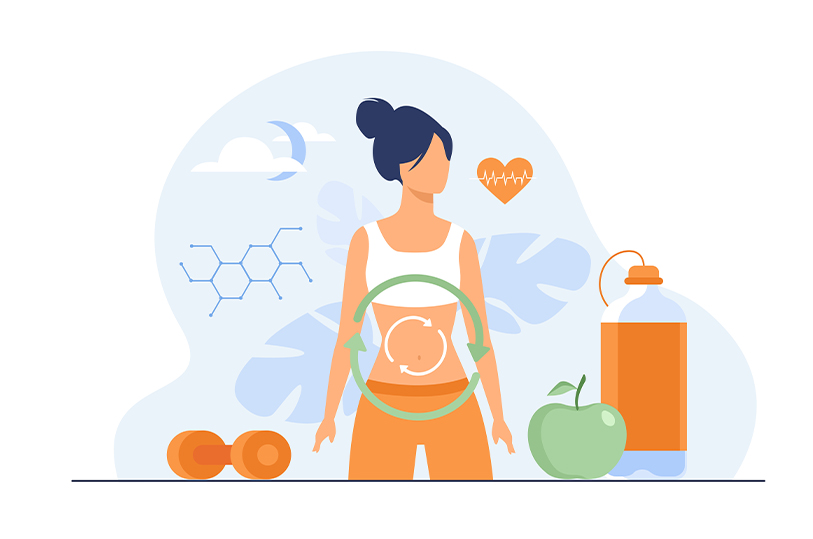
Vitamin A: Benefits, Deficiency and Food Sources
Vitamin A is one of the most essential vitamins our body needs. It’s a group of antioxidant compounds that is required for good vision, straightening the immune system, and cell growth.
Generally, depending on the type of food source it comes from, there are two types of vitamin A:
1.Retinoids – the active form of the vitamin. The pre-formed vitamin comes from animal-derived foods like beef, chicken liver, fish, eggs, whole milk, cheese, etc.
2.Beta-carotene – provitamin A carotenoids that are converted into the retinol form on the body. It comes from plants like some fruits and vegetables.
Here are the main science-backed benefits you can get when you feed your body v A:
Protects eyesight and bone health
Vitamin A has been shown to be effective for preventing night blindness, some eye problems such as age-related eye disease, and treatment of dry eyes. Besides, alongside vitamin D and calcium, v A is important to building strong, healthy bones.
Support skin health and treating acne
Vitamin A is the only scientifically known element that keeps skin healthy and combats the effects of aging. It promotes the effects of the skin’s natural moisturizing factors and stimulates the production of natural protein to keep skin looking healthy.
Boosts the immune system
Vitamin A is proven to boost your immune system and protect against certain diseases. It is important for resistance to infection and a healthy immune system, as well as preventing cells from becoming damaged.
Maintains your heart and lungs function properly
This amazing vitamin is also able to promote the growth of healthy cells and tissues. In its turn, it helps the body to maintain the heart, lungs, kidney, and other organs’ proper function.
Good nutrition in pregnancy
Vitamin A is a crucial micronutrient for morphological and functional development and for ocular integrity during pregnancy.
The deficiency of Vitamin A
On the whole, vitamin A is known to deliver a number of incredible benefits to the body when it is at the right levels. Therefore, try to avoid the deficiency of v A which is the leading cause of preventable blindness. It may weaken the immune system, consequently, the ability to fight diseases. The deficiency of the vitamin could also lead to skin abnormalities such as pigmentation irregularities, sun damage, aging, skin cancer, etc.
The normal dose of vitamin A generally depends on a variety of factors including your age, sex, and even whether you are pregnant or not, etc. In this context, it’s safe to consume vitamin A supplements in normal doses. However, keep in mind that some forms of vitamin A can be toxic in large doses which may cause nausea, vomiting, vertigo, blurry vision, and other health problems. So, consider talking with your doctor first and follow the instructions.
Food sources of Vitamin A
The best food sources rich in vitamin A are cheddar, tuna, salmon, eggs, pumpkin, carrots, squash, sweet potato, cantaloupe, broccoli, spinach, red peppers, etc. Choose orange and green leafy veggies if you want to get the needed daily intake of the vitamin.
To sum up, Vitamin A is an essential nutrient that contributes to many functions in the body. To check your body’s vitamin A and understand your normal doses for everyday intake, feel free to contact Dr. G Health. Make an appointment for a consultation or call 818-650-0111 to schedule an online visit. This is available for new and current patients. Stay healthy!





